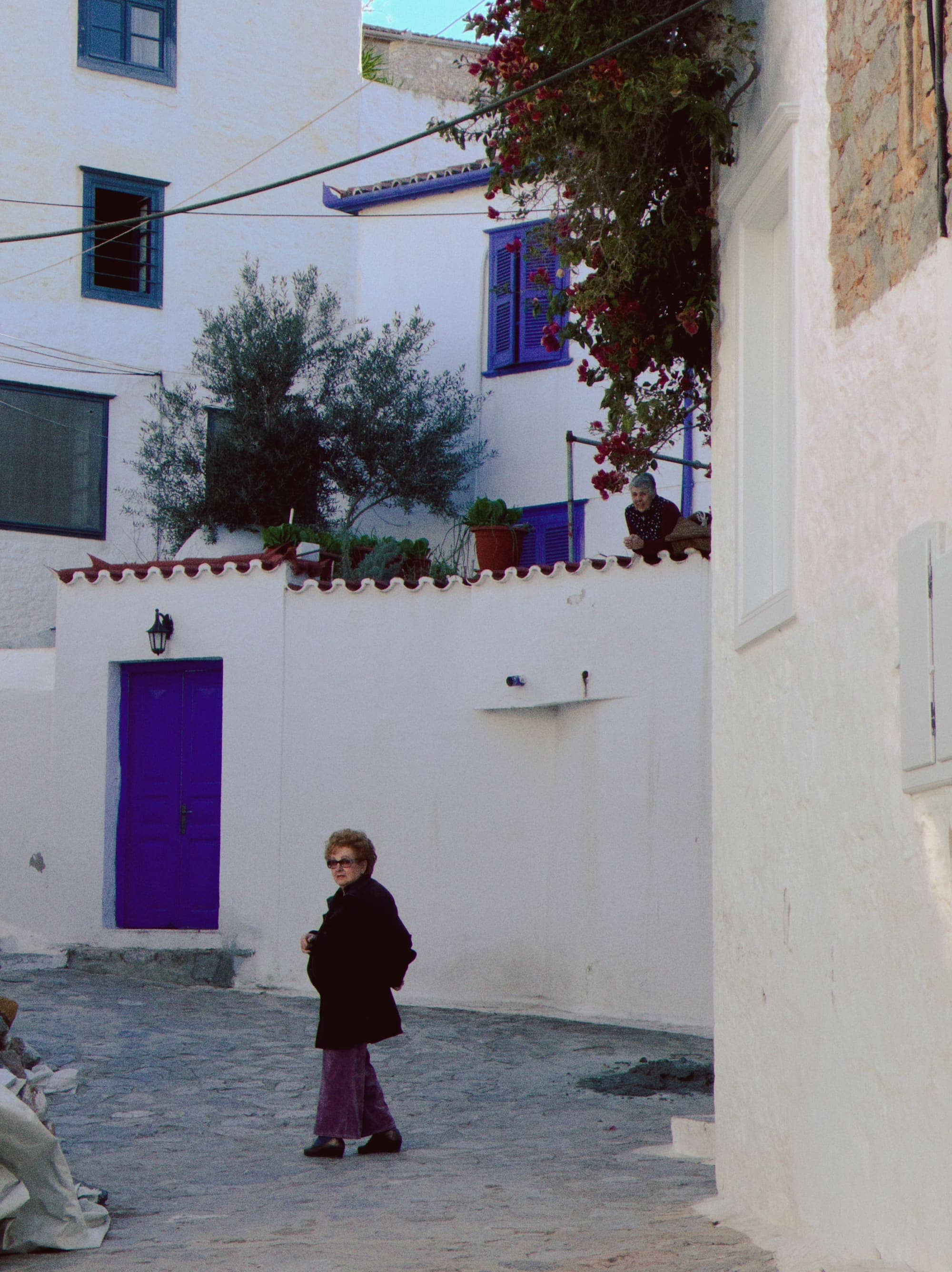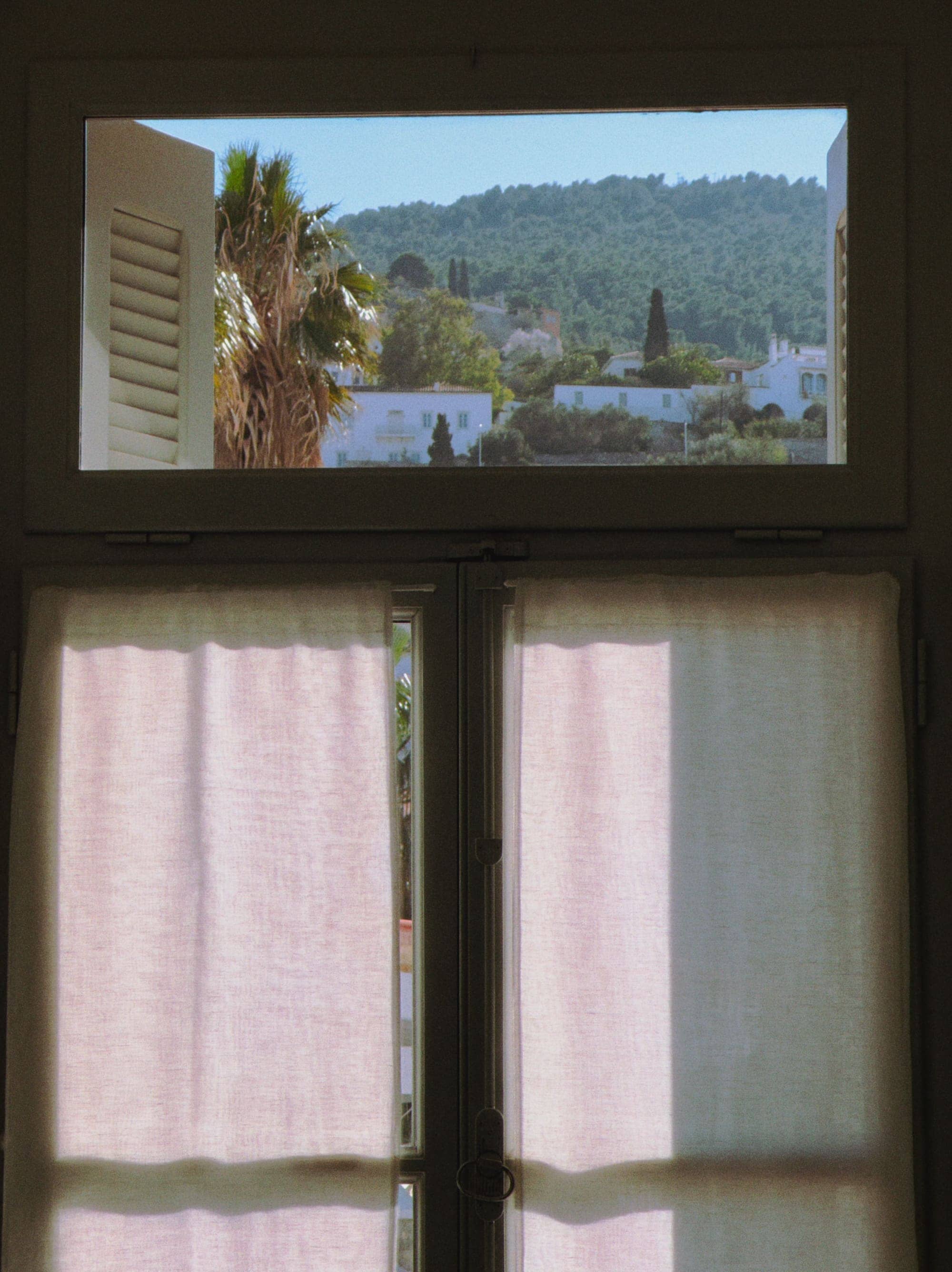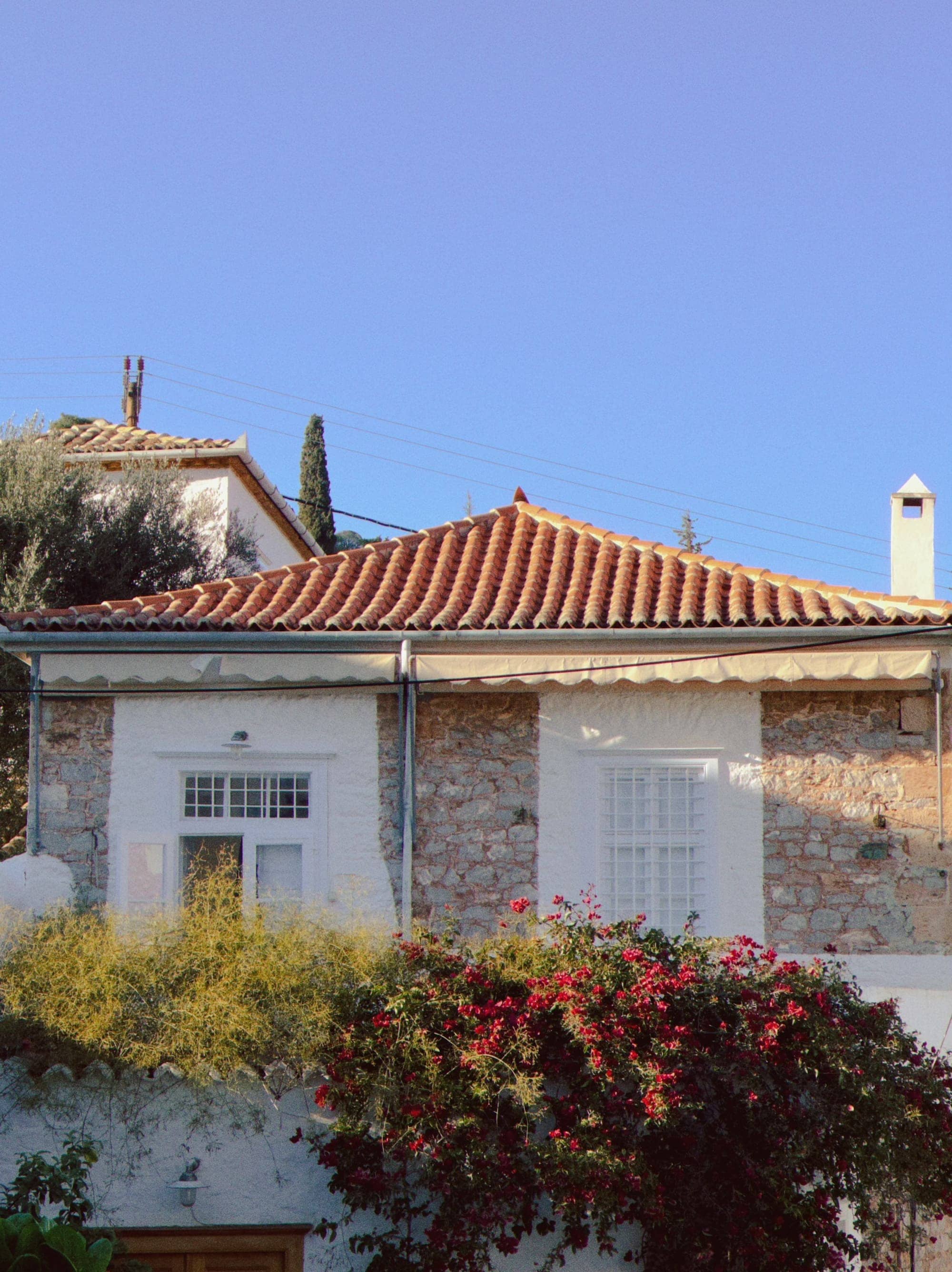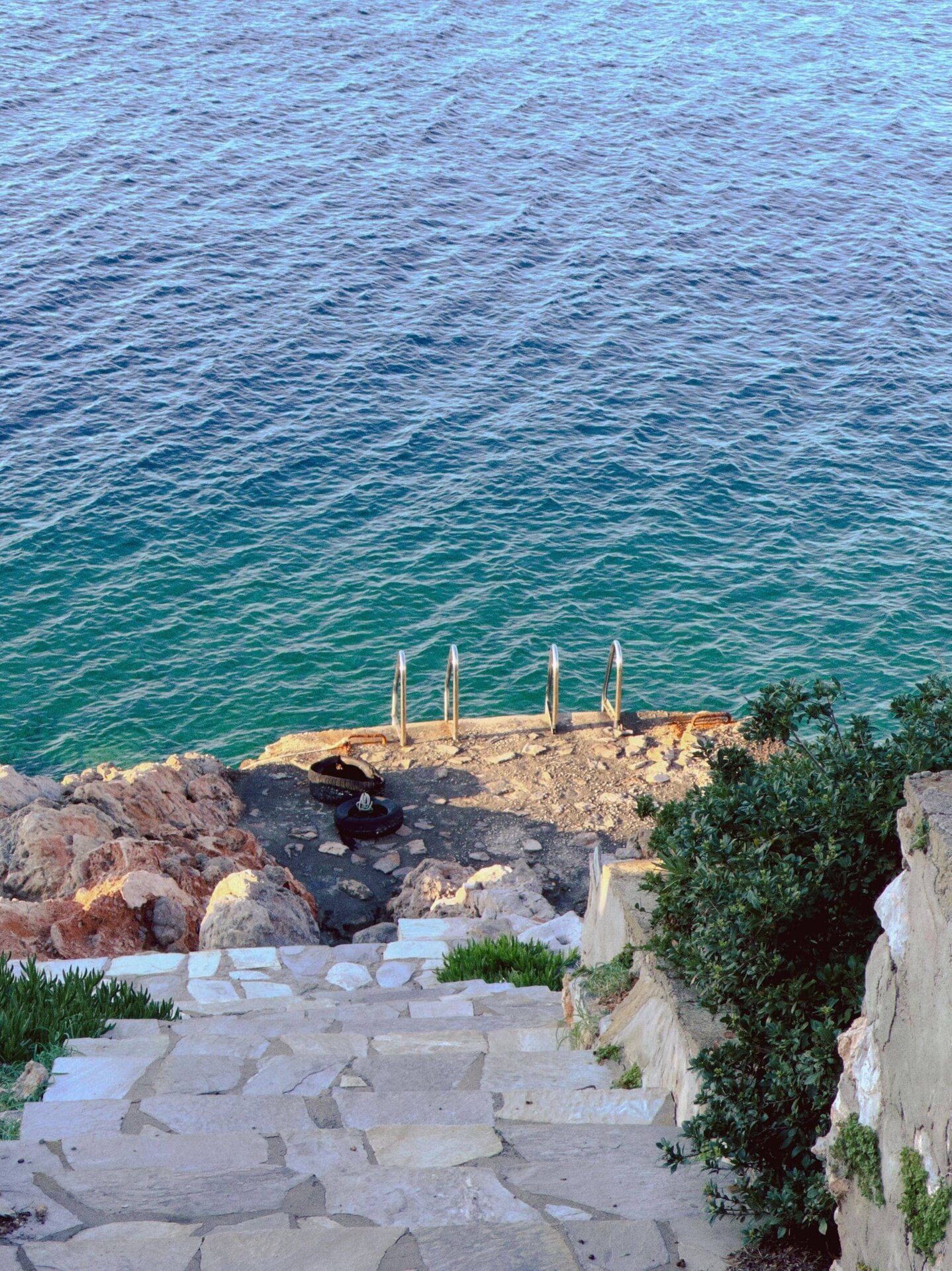Today, I’m excited to introduce a new section to my little newsletter: People More Interesting Than Me.
About a year ago, I discovered mood.camera on Reddit while I was in Greece. A camera app that emulates film camera filters sounded interesting, so I decided to give it a try. I really liked it—the results were impressive, and the app felt almost like using the phone’s native camera.
Some time after that, I received a message from Alex on WhatsApp, asking if he could use some of the photos I’d taken for his website, and that’s how we started talking. I’d been wanting to do written interviews with people I found interesting for a while, so I asked him.
And here we are, a few months later. My first guest, Alex Fox.
First things first: can you introduce yourself?
Hi! My name’s Alex Fox, I’m a developer from London and the creator of mood.camera.
How did you discover your love for photography and decide to spend more time on it?
I’ve been a keen photographer since I was a teenager, but my passion really came alive when I bought my first decent smartphone, a Samsung Galaxy S3. The fact that I could have such a capable camera and photo editing device in my pocket was super exciting. There was also a lot of innovation in the space at that time. Every year, phone cameras were getting better and better. Apps were getting more advanced. I would happily spend hours capturing and tweaking photos, trying to squeeze the most I could out of the phone I had at the time. Even thought I had a decent DSLR, I always came back to my phone camera. You can’t deny the cliche of the “best camera is the one you have with you” but somehow the photos felt more special, like you were defying the norm.
But more recently, despite advances in resolution and low light performance, I’ve felt less inspired to take photos with my iPhone. In the quest for ever sharper and “perfectly exposed” images, it feels like photos have lost their character. I also felt fatigued from my editing flow. Capturing photos in ProRAW was great in theory, but I felt overwhelmed with 100s of photos to edit. The once “fun” point-and-shoot phone camera is edging ever closer to the DSLR experience.
I tried a bunch of different apps to try and bring that character back into the iPhone camera but none of them quite hit the mark. That’s when I began to envision my ideal camera app and around this time last year, I started building a simple prototype, which would become mood.camera.
What kind of resources or research processes did you use to understand how to build Mood from a technical and business perspective?
I’ve been developing apps for a decade so the core design and technology came fairly naturally. The two biggest technical challenges were building the image pipeline and balancing the user experience.
My main goal was to create an app that captured photos with character, moving away from the over-sharpened, hyper-real look that iPhone photos often have. I looked to film for inspiration and spent a lot of time researching the subtitles of grain, colour and other photographic artefacts. I wasn’t looking to replicate film exactly, but I could see how these visual properties gave the photos physicality and feeling. Before touching the code I experimented with different techniques to create these filmic looks within Photoshop. Then, when I was happy with the look, I would recreate that image pipeline in the app. It was quite a long process, as after each iteration I would go out and take some photos to test the look. In the end, though, I am really happy with the results. Sure, it’s not a 100% replication of “real film”, but that was never the intention.
My second objective was to create a simple user experience that challenged the typical photographer’s mindset which leans heavily on editing and control. The ability to capture and edit photos, with greater and greater control, is on one hand incredible, but it’s overwhelming. It’s easy to get caught up in micro-decisions, tweaking every detail until the photo no longer feels spontaneous. I wanted to challenge that.
I made two controversial decisions. One, no live preview of your filter. Two, no editing - all the filmic effects and colour profiles are baked into the photo. You might think, yeh just like real film cameras, but it wasn’t just for the sake of nostalgia. I was more interested in the impact that it has on the psychology of taking a photo. For example, when I was testing other apps, I found that having a live preview meant I was more likely to either spend a minute flipping through filters, or at worst not even take the photo because it didn’t look quite right. I wanted to create an experience where you didn’t think too much, just compose the photo and snap. I also found that, for me, editing had the tendency to make it feel like my photos were never “finished”. With apps like VSCO offering 100s of filters, how am I meant to decide which one looks best?
I know it won’t be for everyone, and I’m not saying that editing photos is a bad thing at all, but there’s something liberating about accepting a photo, imperfections and all. Some of my favourite images have come from unexpected “happy accidents.” By limiting control, I’ve rediscovered the fun in iPhone photography, and that’s the experience I wanted to share with others.
I’m actually adding another small, feature in the next few weeks to curb a bad habit me and many other photographers have. I’m not sure if you’ll have heard the term, but it’s called “chimping”. Essentially it’s the compulsion to check what the photo looks like immediately after you take it. The new, optional, setting will disable the gallery button for 60 seconds after taking the photo. I’m looking forward to turning it on for myself, to break that habit.
A lot of people are willing to share their pictures taken with Mood on WhatsApp, Reddit, and Instagram, which is amazing because you’ve fostered interest in your product and built an active community. How did you create this community? Any advice you can share?
Yeh, I feel really lucky to have such an engaged community, they really help to give meaning to my work. One challenge is that people are very suspicious of anyone trying to market something in these communities, which I completely understand. For example, I originally posted on Reddit looking for beta testers, and it got such a big response that people were commenting things like, “The developers obviously paid people to post positive comments to this post”. With that in mind, I think it’s important to be as transparent as possible, and tell your story. If you want people to spend the time trying your product you need to give them a good reason to.
It’s also important to talk to your users. Spend the time replying to their questions and engaging with the content they post. If you’ve built a product that truly resonates with yourself, it should come naturally. I like nerding out on photography and technology so talking to like minded people about it is part of the fun!
Recommendations are great, so would you like to share some? They can be related to photography or anything you enjoy (videos, articles, books, movies/shows… whatever).
On the Netflix, I’ve been re-watching “Midnight Mass”, a fantastic horror series. Honestly, anything by Mike Flanagan is worth watching. And if you’re into cars, I highly recommend checking out “Revelations” by Hagerty on YouTube. It’s a brilliant series that takes you through the history of some iconic cars.
To switch off before bed, I’ve been reading some cyberpunk / Sci-Fi books, with “Snow Crash” by Neal Stephenson being one of my recent favourites. Highly recommend.
A few pictures I took with mood:
Today’s recommendations
- Aren’t your lonely?. “My advice is keep whoever has the least interest in your social media. The ones who take your online persona the least seriously. They want the whole you, and they know an Instagram grid couldn’t possibly capture it. They like your ugly laugh, not the fake one you use for TikTok. They like those candid, silly pictures when you forgot to perform yourself for a moment, not the staged Instagram selfies that don’t even look like you.”
- The Walking Rebellion. “I walk in order to stand still. Standing still in awe at new (and familiar) sights, be they birds, mountains, cultures, or traditions. I walk to be alone with my thoughts, to test out sentences that will one day be formed and crafted into essays. I walk to experience the places, people, creatures, and moments that will become the subjects of my written words. I walk to write, and I write to walk.”
- Chris Arnade Walks the World. I’m someone who loves to walk, and my passion for photography is deeply connected to it. Walking and capturing moments are essential parts of my process, helping me become more aware of where I am and what I’m doing. It’s a meditative practice. I hope to find more blogs like this one, where people simply write about their walks.







